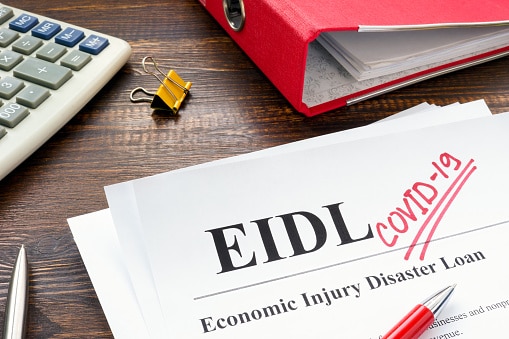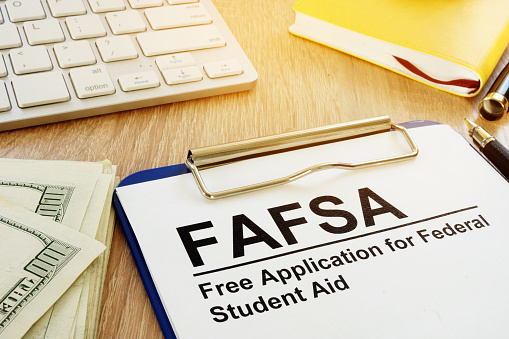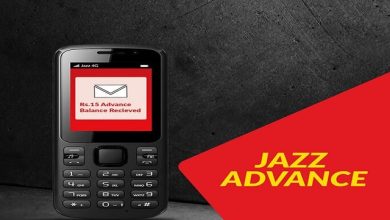Are Small Business Loans Installment or Revolving?
Are small business loans installment or revolving? This article explains everything about small business loans including whether it is an installment or a revolving loan.
A small business loan gives you money to buy goods, grow your company, and other things. This kind of financing could either be installment or revolving.
It will be easier for you to tell if you’re being given an installment loan or revolving loan if you carefully read the credit terms of your loan.
Both loan kinds are offered by financial institutions, credit unions, and online lenders as well as through the Small Business Administration (SBA) lending program.
Despite the fact that both might give your company the required money it needs, there are some important distinctions to be aware of.
ALSO READ:
Can credit card companies garnish your wages?
How to invest in Airbnb without owning property?
Are Small Business Loans Installment or Revolving?
A small business loan can either be installment or revolving. As an illustration, business lines of credit are revolving, while SBA 7(a) loans are installment loans. Equipment loans and microloans are both installment and revolving loans.
What Are Installment Loans?
An installment loan is a kind of loan in which the borrower gets a predetermined sum of money all at once and agrees to pay the lender a certain sum on a consistent basis over a given length of time.
Every payment usually consists of a component to cover interest and a part to reduce the main outstanding.
This kind of loan can also be referred to as business term loan. If further money is required after the loan has been repaid, the borrower will usually have to seek for a fresh loan.
Types of Installment Loans
There are several types of installment loans. Despite the fact that they function almost in the same way, they all has unique characteristics, lending objectives, and typical interest rates.
Personal Loans
Personal loan are funds given by a lender that can be paid back in regular installments over a predetermined length of time with a set interest rate. Online lenders, private lenders, and credit unions all offer these loans.
A personal loan’s profits are given to the borrower in one single payment and may be applied to a range of expenses.
Personal loans typically have payback periods of 24 to 60 months, however few might go up to 72 months.
No-Credit-Check Loans
Payday lenders frequently offer no credit check loans, which do not consider your credit score before extending credit.
Payday loans are designed to assist borrowers in times of need or when they lack access to other forms of financing.
A payday loan typically has a lower maximum loan amount than a personal loan, usually $500 or less.
Payday loans frequently have a short-term and expensive rate. Your paycheck is used as collateral for the loan you borrowed, so your credit score is irrelevant when seeking for these loans.
Once your application for a payday loan has been accepted, you must submit the lender a postdated check for the loan amount and as well as any charges.
The lender offers you money but keeps the check. The lender cashes the check you gave on your following payday.
When you apply for an online loan, you give the lender permission to deduct the amount from your bank account the following payday after you have been paid in your workplace.
Mortgages
A mortgage is another popular type of installment loan. The majority of mortgages compel borrowers to repay the loan over a predetermined period of time, typically 15 or 30 years.
The interest rates for mortgages are typically cheaper since they are secured by property, like a house or condo.
Buy Now, Pay Later Loans
Buy now and pay later Loans are a temporary funding option that let you buy things and pay for them over time in installments with no additional interest. You are required to make the payments within a set timeframe, usually some weeks.
Although these services are helpful, they sometimes have the potential to push you to spend more than you can pay back and lead to extravagance.
These loans can provide the impression that goods or services are more affordable than they actually are.
Student Loans
Student loans are made up of two kinds, which are private and federal. There are both installment loans and provide the same purpose.
Federal student loans are the more common option of the two and are typically accessible to student who requires it.
To be eligible for a federal student loan, you do not need to have a specific required credit score.
Federal student loans also have the advantage of having uniform interest rates, which implies that all borrowers pays the same amount. Furthermore, federal student loan interest rates are set.
As opposed to majority of private student loans, federal loan programs provide a lot of payback advantages such as loan forgiveness programs, income-driven payback schemes, and forbearance and deferment alternatives.
ALSO READ:
How often are FHA loans denied in underwriting?
Which document represents the borrower’s promise to repay the loan?
What Are Revolving Loans?
A revolving loan is a type of loan contract in which the borrower can take out cash as required up to a certain level and pay back the lender a part of the outstanding balance on a periodic basis.
Every payment is calculated depending on the outstanding debt, interest rates, and any additional charges. You are required to only pay interest on the money you actually utilize, not the total amount.
One typical kind of revolving loan is a business line of credit. Revolving loans offers the borrowers the freedom to choose the time and the amount of funds they take.
Provided that the credit amount stays below the predetermined threshold and you keep making payments promptly, you are free to keep drawing from the line repeatedly.
Types of Revolving Loans
The main popular kind of revolving loans are credit cards and home equity line of credit (HELOCs), however, there are others, such as:
- Business lines of credit
- Margin investment accounts
- Deposit accounts with overdraft protection
- Store credit cards
- Gas station cards
- Personal lines of credit
How Can I obtain A Small Business Loan?
A small business loan can either be installment loans or revolving loans. Installment loans are repaid in a set amount per month whereas revolving loans are repaid monthly in different sums.
Small business loans come in a variety of forms, each with their unique requirements and restrictions.
Lines of credit, cash advances, and term loans are the three main popular kinds of small business loans.
Each kinds of loan has unique benefits and drawbacks. Therefore, selecting the appropriate one for your demands is crucial.
Lines of credit provide freedom and instant availability to funds, however they often come with increased interest rates compared to other kinds of loans.
Cash advances are sometimes associated with hefty costs and condensed payback periods, although they can be a rapid means to obtain financing.
Term loans provide extended payback periods and reduced interest rates, however they could need collateral.
It’s crucial to comprehend the terms and conditions before seeking for a small business loan. Ensure you are aware of the loan amount you require, how much interest will be charged, and what the payback conditions are.
After locating a loan that satisfies your requirements, make sure to research and evaluate offers from various lenders to find the ideal bargain.
Requirements For A Small Business Loan
Small businesses have access to a range of credit solutions, each with its unique conditions and specifications.
Lines of credit and installment loans are the two main popular kinds of loans for small businesses.
A business line of credit is a revolving loan and what this implies is that you can use it to borrow money up to a set amount, pay it back, and then borrow more money up to the same level as required.
Installment loans are term loans, this implies that you borrowed a large amount of money that you must repay over a predefined timeframe, typically with set monthly installments.
Invoice financing, merchant cash advances, and SBA-backed loans are additional kinds of loans available to small businesses.
There are specific qualification criteria for each kind of loan. Therefore, it’s crucial to conduct your homework before seeking for a loan.
The two main popular kinds of small business loans are lines of credit and installment loans. A line of credit is a type of revolving loan that enables you to borrow money up to a predetermined amount and pay back the loan as required.
An installment loan is a term loan that gives you a large amount of money that you must repay over time, typically with set monthly installments.
Which Is Preferable for a Small Business Loan: Installment or Revolving?
The decision between an installment loan and a revolving loan will mainly depend on two factors.
First, you must be certain about how you want to spend the loan money. Second, you must be aware of the finest method for paying it back.
Revolving loans may fall short if you require a loan to settle your company debts. They work better for paying salaries, stock, workplace equipment, and other physical products.
Installment loans are preferable for operating capital, industrial real estate acquisitions, and debt settling.
Installment loans are usually recommended if you do more when marking down foreseeable monthly installments in your company spreadsheets and budgets.
Revolving loans is a better option for you if you have the flexibility to pay loan costs anytime and anyway you like.
In both scenarios, Installment loans may be more appealing to you if you are accustomed to losing money rather than earning revenue.
This is due to the fact that the finest installment loans have small charges and interest rates that frequently go down as time passes.
One excellent instance is SBA 7(a) loans, which are simple to identify and apply for from your house or place of business.
Conclusion
We have come to the conclusion of this amazing article on “are small business loans installment or revolving.”
Small business loans provides you with funds to purchase items, expand your business and do so many other things. A small business loan can either be installment or revolving.
Installment or revolving loans are given by banks, online lenders, credit unions and also via the Small Business Administration (SBA) loan program.
You have to consider two major factors when choosing between an installment loan and a revolving loan.
First, you have to be sure about how you intend to utilize the loan money. Second, you also have to know the best means of repaying it.








